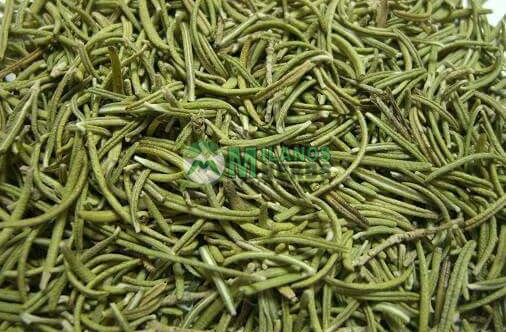
15 Feb Rosemary
| Product Name | Rosemary |
|---|---|
| Latin Name | Folia rosmarini |
| Product Forms | Crushed leaves |
| Season Crop | From April to September |
| Availability time | All over the Year |
| Container Capacity | 5 MT per 20 FCL & 12 MT per 40 FCL (HC) |
| Packing | – PP Bags |
| Specifications | Its color is is green Its Egyptian Origin and grown in Upper Egypt. Rosmarinus officinalis, commonly known as rosemary, is a woody, perennial herb with fragrant, evergreen, needle-like leaves and white, pink, purple, or blue flowers, native to the Mediterranean region. In foods, rosemary is used as a spice. The leaf and oil are used in foods, and the oil is used in beverages. In manufacturing, rosemary oil is used as a fragrant component in soaps and perfumes. Rosemary is used for digestion problems, including heartburn, intestinal gas (flatulence), liver and gallbladder complaints, and loss of appetite. It is also used for gout, cough, headache, high blood pressure, and reducing age-related memory loss. Some women use rosemary for increasing menstrual flow and causing abortions. Rosemary is used topically (applied to the skin) for preventing and treating baldness; and treating circulation problems, toothache, a skin condition called eczema, and joint or muscle pain such as myalgia, sciatica, and intercostal neuralgia. It is also used for wound healing, in bath therapy (balneotherapy), and as an insect repellent. |

Sorry, the comment form is closed at this time.